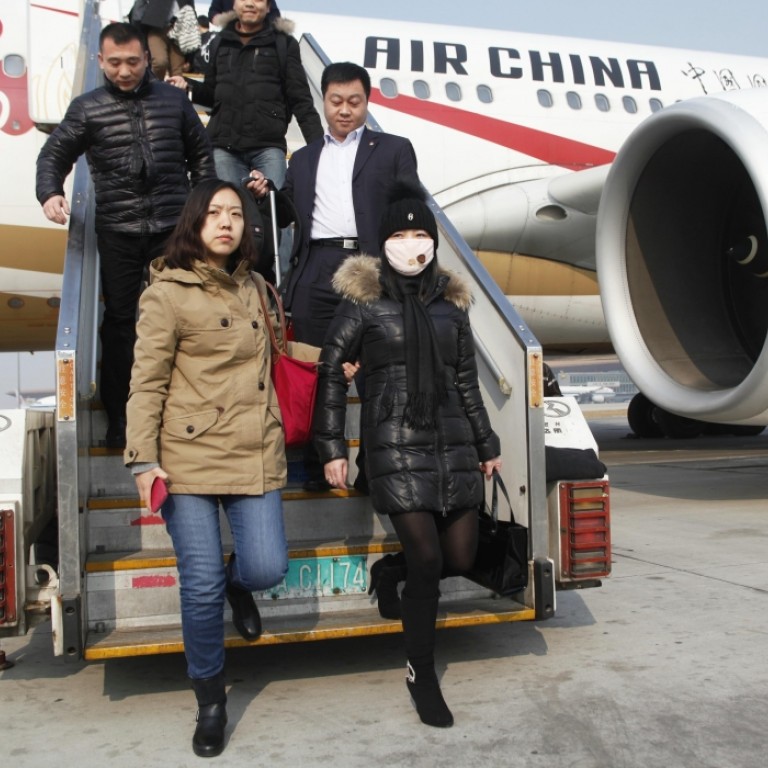
Investigators face huge task to catch China’s 100 wanted fugitives: analysts
China has just published its list of 100 wanted fugitives - including five believed to have fled to Hong Kong - but now comes the hard part, according to analysts.
Beijing has just published its list of 100 wanted fugitives - including five believed to have fled to Hong Kong - but now comes the hard part, according to analysts.
The nation's top anti-graft watchdog still had a huge amount of work ahead before the suspects could be successfully extradited, the analysts said.
The Central Commission for Discipline Inspection issued the list on Wednesday as part of its "Sky Net" anti-graft operation.
It revealed details about the fugitives, including their alleged crimes and the nations where they are believed to have fled.
Most fugitives on the list are in countries that do not have extradition treaties with China, according to the CCDI. Forty are believed to be in the United States, with another 26 in Canada, and 10 in both New Zealand and Australia. Five were believed to be in Hong Kong. There is no extradition agreement between Hong Kong and the mainland.
All the suspects are subject to Interpol red notices, which appeal for each wanted person to be located and arrested and for member states to extradite them.
Duan Daqi, deputy head of Interpol's China bureau, told state broadcaster CCTV that once issued, the red notices would help to create a global monitoring effect, with member states able to take different actions according to the law.
"[The red notices mean] some countries can adopt temporary detention, as well as forceful measures such as arrest, repatriation and extradition," Duan was quoted as saying. "They can also monitor the whereabouts of the fugitives and report to China."
But China had only 40 to 60 days to act before those detention periods expired, said Huang Feng, head of the Institute for International Criminal Law at Beijing Normal University, CCTV reported.
"We need to formally apply to those countries for extradition or repatriation within the deadline, and to hand in evidence and legal documents," Huang said.
James To Kun-sun, a member of the Legislative Council's security panel, said that even though the fugitives were wanted by Interpol, Hong Kong police were not necessarily obliged to arrest the five suspects believed to be in the city. "It depends on which country [is demanding the fugitives]," he said. "If it's a country that has no repatriation or surrender agreement with Hong Kong, no arrests will be made unless the suspects also commit crimes in Hong Kong."
But the CCDI said it had other means to extradite fugitives, including providing evidence of criminal activity to host countries, or getting the suspects sent back - either directly or via a third country - on the grounds of illegal immigration.
Even if the fugitives were not returned to China, Chinese authorities could provide evidence so that host countries could prosecute the fugitives under local laws, an article posted on the CCDI's website last month said.
Mo Shaoping , a criminal defence lawyer based in Beijing, said these alternatives had their limits. Among other things, different judicial systems often had very different requirements for evidence gathering.
President Xi Jinping has said that it is just as important for graft-busters to go after "flies" - or low-level people suspected of corruption - as it is to pursue "tigers", or senior officials.
Andrew Wedeman, professor of political science at Georgia State University in the US, said that despite being made up of mostly lower-level, little-known figures, the fugitive list was likely to a be an accurate, real-life cross section of corruption in China.
"China's corruption problem is not one of just a few corrupt 'tigers'," Wedeman said.
"Rather it is about a much larger group of 'flies' and apparently widespread corruption among the mid-level officials of the Chinese state apparatus and state-sector managers."

